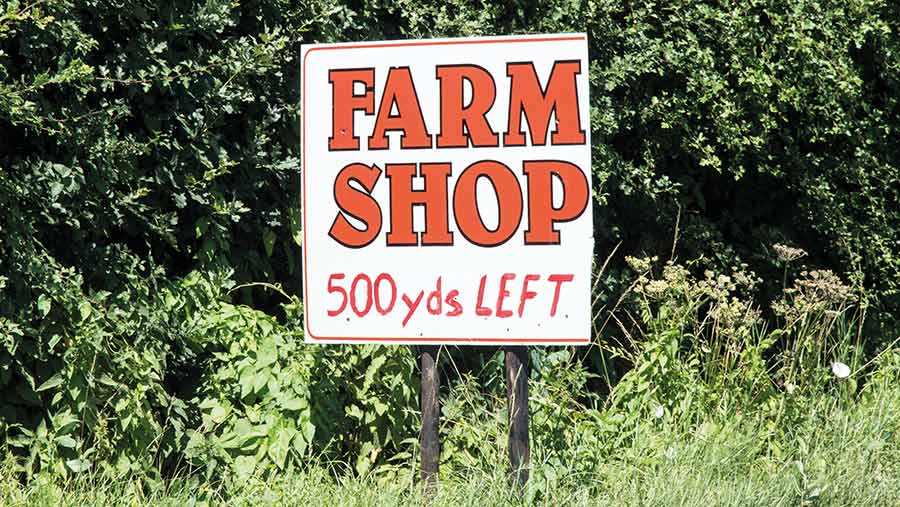Business Clinic: Does a farm shop need planning permission?
 © Adobe Stock
© Adobe Stock Whether you have a legal, tax, insurance, management or land issue, Farmers Weekly’s Business Clinic experts can help.
Diana Miller, solicitor, Thrings, looks at the planning considerations when opening a farm shop.
Q. We are thinking of setting up a farm shop. Will we need to think about planning permission?
A. Yes, you will need to consider if planning permission will be required. However, in some cases the requirement may be avoided.
Under the Town and Country Planning Act 1990, planning permission is required for the carrying out on land of any development.
Development is defined as the “carrying out of building, engineering, mining or other operation in, on, over or under the land to the making of a material change in the use of buildings or other land”.
Use of a pre-existing building
While seeking professional advice is recommended, there are factors which may help you avoid having to acquire planning permission – including ensuring the shop is “ancillary” to your farming enterprise.
See also: Business Clinic – how can I get others to sell shared land?
In general terms, a farm shop is unlikely to require planning permission provided that there is no planning condition prohibiting its use as a farm shop; it remains subservient to the primary agricultural use; it does not have the character of a “self-contained” retail unit; and the farm shop is ordinarily incidental to the use of the land for agriculture.
In one planning appeal, an inspector noted that piglets reared on site were slaughtered and packed elsewhere prior to sale; this broke the “ancillary” link required to satisfy planning considerations.
Another – Millington v the Secretary of State for the Environment, Transport and the Regions (1999) – concerned the production of grapes grown on the farm and whether wine-making was an activity for the purposes of agriculture. The case provided a legal test in respect of “ancillary” and highlighted a number of key factors for consideration:
- Whether the operation could be included in the general term “agriculture”
- Whether it could be considered as ordinarily incidental to, for example, the growing of grapes
- Whether it could be regarded as ancillary to normal farming activities
- Whether it is considered as reasonably necessary to make the product marketable.
If the answers to these questions are yes, it is more likely than not that the use of a pre-existing building as a farm shop will not require planning permission. Much will depend on the circumstances of each unique case.
Home-grown v imported goods
When deciding how and with what to stock your farm shop, consider the levels of imported produce being sold (ie not reared or grown at the holding).
If the sales of the shop are not sufficiently connected to the farm, it may be treated as a free-standing retail unit for the sale of goods; this would be a material change of use requiring planning permission.
The planning judgements of local authorities or planning inspectors have varied on the question of what level of imported produce for farm shops is acceptable or too minor to merit consideration.
Many authorities consider 10% acceptable although 20% is not unknown. Speak to your local planning officers before making any commitments.
The building
Ensure there are no planning conditions preventing the building being used in the manner you envisage.
You may be considering obtaining planning permission or exercising permitted development rights to erect or extend a building to use as a farm shop.
There are differences in the law between England and Wales, and in some cases your permitted development rights may have been limited or removed on your site or more generally.
For example, if your building is listed, you are located within a conservation area, national park or an area of outstanding natural beauty.
It is advisable to confirm the position before starting any works.
Making a plan
You may want to ask other farm shops what lies behind their success. I also recommend speaking to your council’s planning officer, setting out your family’s ambitions before listening to the officer’s planning considerations.
Opening the conversation at an early stage can often lead to better working relationships and save you time and money.
Getting legal advice from a specialist that understands your farming aspirations and commercial needs at an early stage will often prove cost- and time-effective.
Do you have a question for the panel?
Outline your legal, tax, finance, insurance or farm management question in no more than 350 words and Farmers Weekly will put it to a member of the panel. Please give as much information as possible.
Email your question to FW-Businessclinic@markallengroup.com using the subject line “Business Clinic”.

